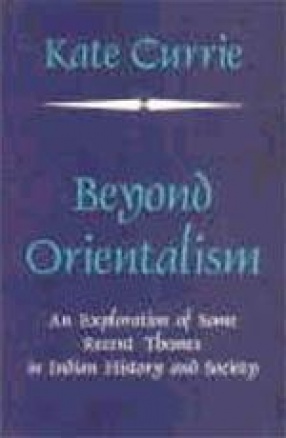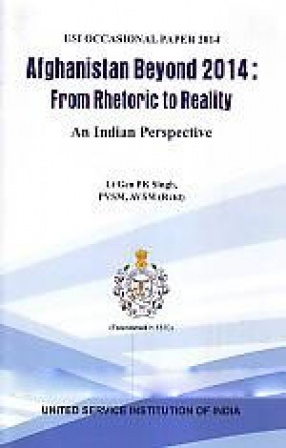This book examines the way in which, over the last few decades, a diversity of scholars of Indian society have attempted to confront and transcend orientalism. As the notion of orientalism provides the integrative thread linking the various chapters, the rationale of the first chapter is to frame the context for the subsequent substantive chapters which explore the critical approaches in greater detail. In the opening chapter the author considers how the orientalist discourse has been constructed and constituted as ‘imperial knowledge’. The encounter with orientalism and the critique of that discourse must be contextualised within the broader debate addressing modernity and post-modernity. The second chapter locates Marx as a materialist moderniser (Said) for whom India was an element in a redemptive project in which the progressive aspect of western development was magnificed through comparison with a static (unhistorical) east. Chapter three pursues the critique of Marx stagnationist account of India via the Marxist quest after an Indian feudalism. This, in turn, gives way to the critique of perceived Eurocentric categories of both Asiatic and feudal modes in an attempt to develop categories and typologies appropriate for analysing pre-colonial India (Mukhia). Chapter four considers whether a world system perspective on India (Prabhakaran) in confronting the orientalist nuances of Indology, succeeds in challenging the prevailing preoccupation of world system theory (Wallerstein) with core capitalism. While the orientalist discourse is anchored in modernity, many of the writers engaged in the critique are inspired by ideas and methods associated with post-modernity. This emerges in chapters five (on subaltern studies) and chapter six (on structures of patriarchy and constructions of gender). Chapter five traces the critique of colonialist, nationalist and (variants of the ) Marxist discourses through critical engagement with the first six volumes of Guha’s subaltern studies, in which there emerages a shift in emphasis from an hegemonic challenge to representation through discursive practices. In the final substantive chapter the critique of orientalism, which endorses the right of misrepresented groups to speak and represent themselves, focuses on feminist critiques of patriarchal structures (Bardhan, Mies, Sharma) and patriarchal constructions and representations of gender (Chakravarti, Mani, Vaid, Spivak, Ram). The authors discussed have attempted to go beyond the polarities embedded in orientalism in order to create new modes of analyses.
History of the Portuguese in Bengal with maps and illustrations
Mr. Campos has collected ...
$30.78
$32.40





There are no reviews yet.